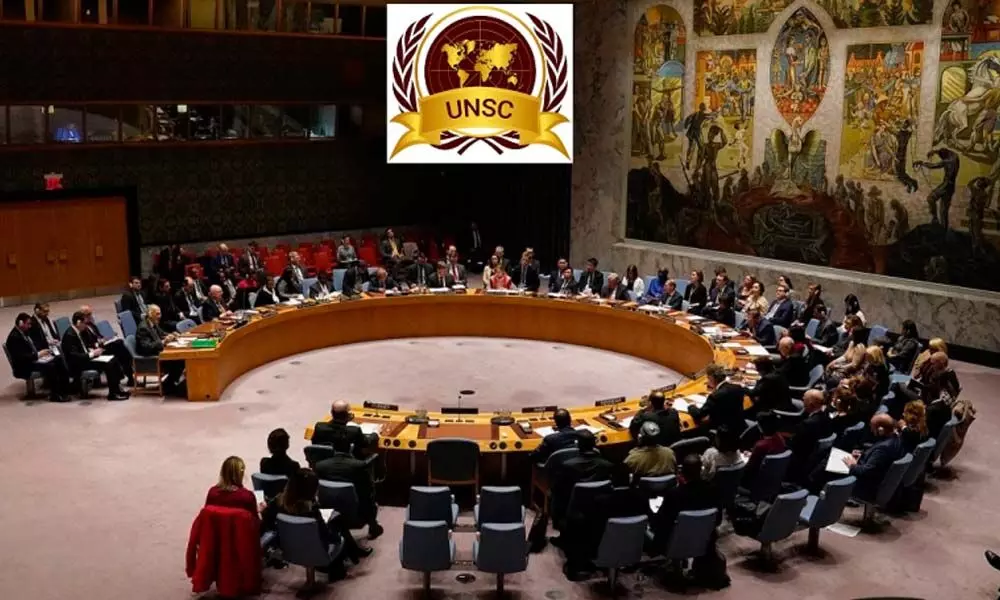UNSC Permanent Seat: Will wait for India ever end?
The roadblock is that Articles 108 and 109 of the United Nations Charter grant the P5 veto over any amendments to the Charter, requiring them to approve of any modifications to the UNSC veto power, that they themselves hold.
image for illustrative purpose

With India being part of United Nations Security Council (UNSC) as non-permanent member from January 1, 2021, and UN 75 years of celebration (2020) hangover rolling over to next year, the debate on UNSC reforms continues, with no worthwhile progress, despite high pitch for reforms made by many countries including India.
The fact that unilateral and multilateral interventions without UNSC sanction continue to happen; UN hesitancy and alleged delay to declare coronavirus as pandemic is seen as arm-twisting by Permanent Five (P5) members and UNSC passes resolution to grant stipend to UN designated global terrorist, diluting global response to biggest security challenge of the century, are some examples to justify poor credibility of UN/UNSC in absence of reforms.
Reforms unavoidable!
With global economic and population fulcrum shifting to Indo-Pacific, inadequate Asian representation and no African and Latin American representation are pushing UN to irrelevance, unless it reforms itself. With Non-permanent status, it can be part of resolutions for next two years, set the agenda when it gets monthly Presidency twice and at best try to create an environment of reforms.
The need for UNSC reforms has been emphasised by most of the UN Secretary Generals during their tenures. Antonio Guterres expression, "The Security Council we have now does not correspond to today's world. I have encouraged member states to have a serious dialogue on this. I want to continue this dialogue at the UN General Assembly, but the permanent members do not agree" indicates the helplessness of UN in dealing with P5 on the subject.
Indian PM Modi in his address on 75th Anniversary of UN had urged that "Reform in the responses, in the processes, and in the very character of the UN is the need of the hour." Many other countries have expressed similar sentiments since last three decades.
UN charter amendment
By 1992, India, Brazil, Germany, and Japan (referred as G4) had put up their claims and logic for demanding inclusion as permanent members. India has been part of UN since inception, has the world's second-largest population and is the world's largest democracy suited to represent South Asia, having contributed maximum peacekeepers to UN so far, has a strong case.
Brazil is the largest country in Latin America (unrepresented continent) and fifth largest in the world. Japan and Germany are one of the largest financial donors to UN. Besides G4 countries South Africa (largest economy in African Continent) is also a claimant, as the Continent remains unrepresented on high table of permanent members.
Reform in UNSC requires an amendment to the UN charter, in accordance with Article 108, which highlights that any reform of the Security Council not only requires the support of at least two-thirds of UN member states, but also all the permanent members of the UN Security Council must also agree to that, as they have veto powers.
Veto power: The bone of contention!
Reforms to improve effectiveness and responsiveness of UN to international security challenges are meaningless without the reform of the UNSC veto power with P5, which enables any one of them to prevent the adoption of any "substantive" draft Council resolution, regardless of its level of international support.
There have been many proposals since inception from totally abolishing veto power to selectively using for vital national security issues and requiring agreement from multiple states before exercising the veto thereby following consensus principle.
The roadblock is that Articles 108 and 109 of the United Nations Charter grant the P5 veto over any amendments to the Charter, requiring them to approve of any modifications to the UNSC veto power, that they themselves hold. It thus becomes obvious that even if one member of P5 doesn't agree to any reform, the UNSC cannot be reformed.
Today the Permanent members (P5) countries in UNSC being a divided house, the veto power is the biggest obstacle in getting through any resolution, even for the global benefit, if it happens to be against national interest of any one of the P5 members or their allies/partners.
Suggested model
Besides the existing P5 members, an expansion of UNSC from five to 10 permanent members, with the addition of G4 and South Africa will provide equitable regional representation besides balancing developing and developed world to meet the aspirations of humanity. These ten countries account for nine out of ten largest economies and eight out of ten largest defence budgets. The expansion of P5 without veto power makes very little impact on the problems, because of which the reforms are required. Ideally the veto power should be abolished, but I don't think P5 will like to part with their trump card, which makes them powerful in UN. (IANS)

